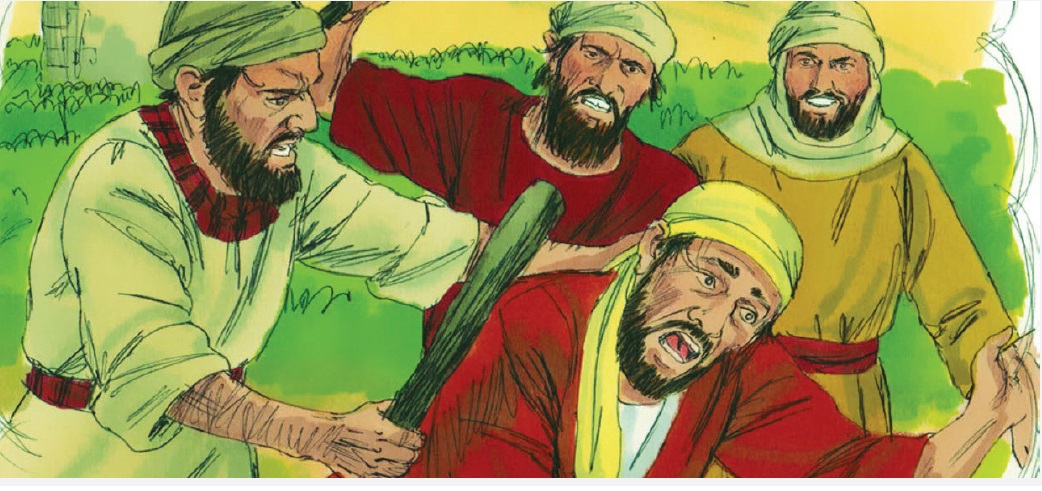The Kingdom of God can never be destroyed
“Below expectation and beyond expectation” could be a perspective from which to reflect on today’s readings, especially the Gospel. Our way of life and the fruit we bear fall below God’s expectation.
Oct 06, 2023

Reflecting on our Sunday Readings with Archbishop Emeritus John Ha
27th Sunday of Ordinary Time (A)
Readings: Isaiah 5:1-7;
Philippians 4: 6-9;
Gospel: Matthew 21:33-43
“Below expectation and beyond expectation” could be a perspective from which to reflect on today’s readings, especially the Gospel. Our way of life and the fruit we bear fall below God’s expectation. Yet, what God has done and will continue to do goes beyond our expectation.
The first reading gives us the famous song of the vineyard from Isaiah. The song sings of the love of the singer’s “friend (‘beloved’ in the Hebrew text) for his vineyard”. Every detail in the song conveys an aspect of the meticulous care the friend took of his vineyard in which he “planted choice vines”. Naturally his expectation was for the vineyard to produce good grapes; but instead “sour grapes were all that it gave.”
From what follows, it is clear that the song depicts God and the care He took of His people made up of the “House of Israel and men of Judah”, that is, those in the northern and southern kingdoms. Such care included His liberation of them from slavery in Egypt to bring them to the land He had promised Abraham, their ancestor, to give them. On their way, at Sinai, He sealed a covenant with them to make them His own people and to be their God. After 40 years of sojourn in the wilderness, He brought them to the Promised Land and established them as a great kingdom.
But what was the outcome? The people’s infidelity to the covenant and disobedience to God. This certainly fell far short of God’s expectation. The song could not be any clearer and stronger in conveying this failure of the people than through its very skilful play on words in the concluding lines of the first reading: “He expected mishpat (justice) but found mishpach (bloodshed), tsedaqah (integrity) but only tse?aqah (cry of distress).” Far from the fine grapes God expected after all His meticulous care of it, the vineyard produced sour grapes.
In His disappointment, God exposed His people to invasion by the Assyrians and the Babylonians. That resulted in their exile. Nonetheless, He still acted in their favour. He did not mean to destroy His people through their exile but to give them a lesson to secure their conversion. He later brought them back from exile and restored the land to them. For God is God and not man. His ways were not man’s ways. His ways go beyond human expectation.
Through the parable of the vineyard, today’s Gospel reading recalls this story of God’s people. The vineyard refers to the people and its owner God. After doing everything necessary to ensure their safety and fruitfulness, God “leased” the vineyard to “tenants”. That means, God entrusted His people to the care of leaders like the priests, elders and scribes. At the time of harvest, God sent servants to “collect the produce”. These servants refer to the prophets God sent to His people to call for repentance. As was often the case, many of these prophets were rejected and some were even killed by the leaders. In the end, God sent His Son in Jesus, on the grounds that “they will respect My Son.” But as it turned out, the leaders claimed ownership of the people and swayed them over to demand that Jesus be crucified.
Little did the leaders and the people realise that Jesus would rise from the dead. Through His resurrection, Jesus brought life even to those who had put Him to death on the cross. On this score, as Jesus’ quotation from Ps 118:22-23 affirms, “It was the stone rejected by the builders that became the keystone. This was the Lord’s doing and it is wonderful to see.” Indeed, the crucified and risen Jesus became the foundation of the kingdom of God, beyond anyone’s expectation.
Yet another point beyond expectation came from Jesus’ words, “I tell you then, that the kingdom of God will be taken from you and given to a people who will produce its fruit.” The kingdom of God could never be destroyed. Rejected by those chosen to inherit it, it passed into the hands of new “tenants” — the Apostles chosen by Christ for the new people of God, the Church.
The Church is universal. She embraces the Old Testament people of God as well as His new people. The produce she yields for God is none other than the life that Jesus came into the world to bring to all fallen humankind. This life is marked by justice and integrity. We are this universal Church. We stand to possess this life, which is eternal life in the kingdom. Jesus is the cornerstone and stands as our guarantor.
Humankind has fallen far below God’s expectation. But God has transformed this fall into a platform where He acted beyond any human expectation. He rescued sinful humankind from death. He turned His Son’s death into a life-giving event. On this score, eternal life in the kingdom has now become our expectation. To meet it, we must yield “fine grapes”, that is, justice and integrity.







Total Comments:0